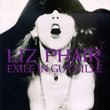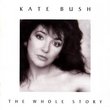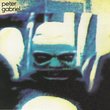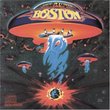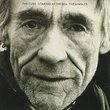| All Artists: Laurie Anderson Title: Mister Heartbreak Members Wishing: 1 Total Copies: 0 Label: Warner Bros / Wea Release Date: 10/25/1990 Genres: Alternative Rock, Special Interest, Pop, Rock Styles: Indie & Lo-Fi, American Alternative, Experimental Music, Progressive, Progressive Rock Number of Discs: 1 SwapaCD Credits: 1 UPCs: 075992507721, 075992507745 |
Search - Laurie Anderson :: Mister Heartbreak
 | Laurie Anderson Mister Heartbreak Genres: Alternative Rock, Special Interest, Pop, Rock
|
Larger Image |
CD DetailsSimilarly Requested CDs
|
CD ReviewsA great introduction to Laurie Anderson Glen Engel Cox | Kuala Lumpur, Malaysia | 02/04/2006 (5 out of 5 stars) "I think this is probably Laurie Anderson's single best work, although there are some great songs and stories on her other albums. But there's usually something on one of those other albums that I'm quick to hit the next button with, whereas every song on Mister Heartbreak is fascinating and interesting. Anderson's music is quite experimental, from the noises used in the production to the structure of the "songs," and there are a fair number of failures in her recorded output which makes the lack of the same on this album unusual. I inevitably connect Anderson's sound to the minimalists of classical music, for at the same time I discovered Anderson I was also immersed in Philip Glass, an avid experimentalist in his own right. Both composures use repetitive structures upon which they overlay new sounds or slowly modify from the repeating pattern to discover a melody. However, Anderson's repetition is mostly through rhythmic patterns rather than repeated melodic passages. To break up the repetition are unusual sounds wrung out of Adrian Belew's guitar and the off-kilter percussion of David van Tiegham. But the real reason I enjoy this album is for the lyrics, which were repeated constantly by my circle of friends in college so much that they quicklyl became catch phrases, were you only had to start a passage and everyone knew what you were referring to. Anderson's skill with language is that she is able to distill a phrase out of its common usage and make it sound new and fresh, partly through the phrasing, akin to how William Shatner would make each word a separate sentence. In "Blue Lagoon," it's the simple passage of "I got your letter. Thanks. A lot." By breaking the phrase in this way, you start focusing on each word until it becomes unfamiliar, like when you stare at a word so long that it ceases to look like that word or seems to be misspelled. The themes here range from the literary (from the lifting of passages from Herman Melville's Moby Dick in Blue Lagoon to the Pynchonian "Gravity's Angel") to the mythological ("Kokoku" and "Langue D'Amour"). My favorites have to be the bracketing songs, "Sharkey's Day" and "Sharkey's Night," the latter with a guest vocal by William S. Burroughs, whose gravelly-voiced delivery is a perfect counterpoint to Anderson's silkier tones. I can't necessarily recommend Laurie Anderson, because like most experimental artists, she's one that takes quite some time to get used to. However, as an introduction to her work, Mister Heartbreak is likely the most accessible and repeatedly listenable." Still kicking after all these years Ed Hotchkiss | Seattle, WA USA | 08/29/2001 (5 out of 5 stars) "Laurie Anderson's work has ranged from the tired to the sublime. Mr. Heartbreak is a collection of 7 of her best works on one album and the whole is mesmerizing. Laurie's staccato enunciation of prose is at times punctuated by Adrian Belew's guitar, at others softened by Peter Gabriel's warm tones. Excellent Birds, which features Gabriel, remains one of my favorite songs by either artist. Laurie Anderson has often blazed new trails, but as others have trod in her footsteps some of her efforts have been rendered a bit cliched. More than 15 years after its original release, Mr. Heartbreak is still so fresh and vibrant that it remains in my regular rotation." RHYTHM, BEAT AND LOGIC Guy De Federicis | east of here | 08/03/2001 (4 out of 5 stars) "African rhythms and percussions predominate Laurie Anderson's "Mister Heartbreak", an urban spiritual odyssey through a 'West Side Story'-like cityscape that recalls Brian Eno and David Byrne's "My Life In The Bush of Ghosts", and Peter Gabriel's (he guests and produces on the album) "Security" as Congo conscious Western music. The African instrumental intro to the opening track, "Sharkey's Day" sounds just like the opening, rallying whistles of street gangs 'The Sharks' and 'The Jets' in the Broadway musical, "West Side Story" and the album seems to use that Leonard Bernstein and Stephen Sondheim score as a blueprint for a radical musical concept of city sidewalks and African pathways cutting across the imagination like a shark on the beach. In other words, it's got a great beat, you can slow-dance to it and it's way cool."
|

 Track Listings (7) - Disc #1
Track Listings (7) - Disc #1
